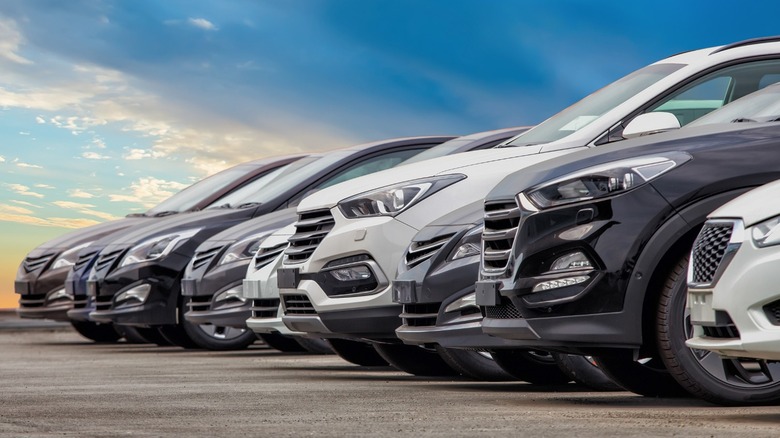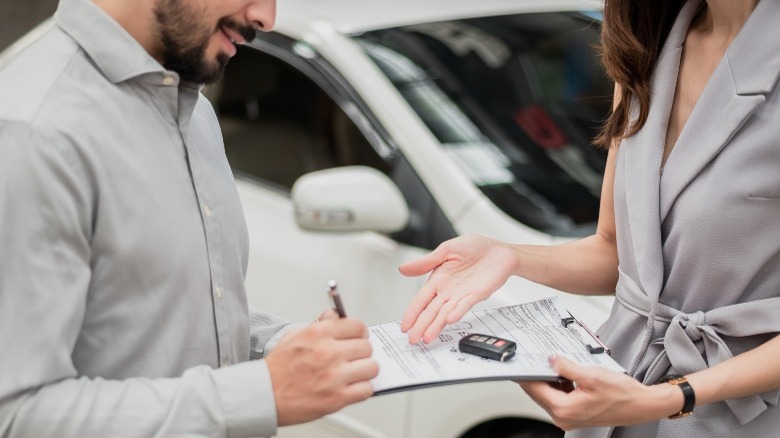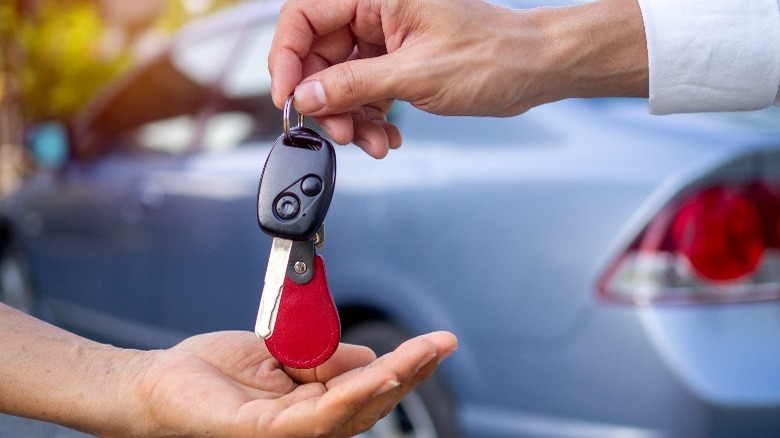https://queenanfamilymedicine.com/top/3-ejemplos-de-actos-absolutamente-mercantiles/

Mikbiz/Shutterstock
By Jona Jaupi/Sept. 1, 2021 6:58 pm EDT
If you are one of the 229 million licensed drivers in the United States, per Statista, then chances are you have been faced with the decision of whether or not to lease a car at some point. You might be a newly licensed driver who is thinking about leasing, or perhaps you’re already the proud owner of a car, but are contemplating making the switch to leasing. Depending on your individual preference, lifestyle, how often or little you drive, and of course, your financial situation, leasing might be the right move for you. Or it might not be.
As is the case with most things, there are both benefits and drawbacks to leasing a vehicle. It is wise to do your due diligence and make sure you know everything that goes into leasing before you decide to take the plunge. To help you with your research, we’ve decided to put some important information together that might help answer some questions you have. Read on to see everything you need to know before leasing a car.
Pros to leasing a car

There are several pros to leasing a vehicle over purchasing. For starters, it usually consists of lower monthly payments than financing. When you finance a car, you pay the principle amount of the vehicle over the life of the financing, plus interest. However, when you lease, you don’t pay for the entire value of the car, but instead the depreciation (as well as rent and taxes) over the life of the lease, according to Chase. This tends to be a much lower cost.
Second, you normally don’t have to worry about repair costs, which, if you live in a city like New York, can be frequent and through the roof (thank you, never-ending pot holes!). According to Chase, most repairs are usually covered by the manufacturer’s bumper-to-bumper warranty, and in some cases, they will even cover maintenance costs. Still, you’re going to want to check your lease contract to make sure of this.
Another awesome benefit to leasing is that you don’t have to worry about reselling when your lease runs out. You also don’t have to pay the remaining value of the car off when your lease ends. The best part, though, is you simply move on to your next preferred car! And the fact that most lease contracts last for only 24 to 48 months means you get a newer, safer model every one to two years.
Drawbacks to leasing a car

While there are many benefits to leasing a car, there are some drawbacks as well. While the monthly payments of leasing are lower, if you’re planning to lease for a long time, then you end up actually paying much more than if you chose to own a car, according to Real Car Tips. So, if you’re a high-roller exec who can afford to lease a new Mercedes for the next 10 years, then more power to you. If you’re not, though, then owning might actually be a more cost-efficient option for you.
Another drawback to leasing is that you will have limited mileage. Most lease contracts will only allow to drive about 10,000 and 15,000 miles per year. And if you go over that amount, you could be facing a pretty hefty fee, according to Real Car Tips. Therefore, it’s imperative that you think about how often you will be driving if you’re considering leasing.
Lastly, leasing a car can lead to a pretty high insurance cost. Oftentimes, the insurance (which can require as much as $300,000 in liability coverage) can actually cost more than it would if you purchase a vehicle. This is usually due to state laws, which not only place the responsibility on the driver of the car, but the leasing company (aka, the deep-pocket owners of the vehicle). All in all, you’re going to want to consider all of your options carefully before deciding to lease a car.
Source: Read Full Article
